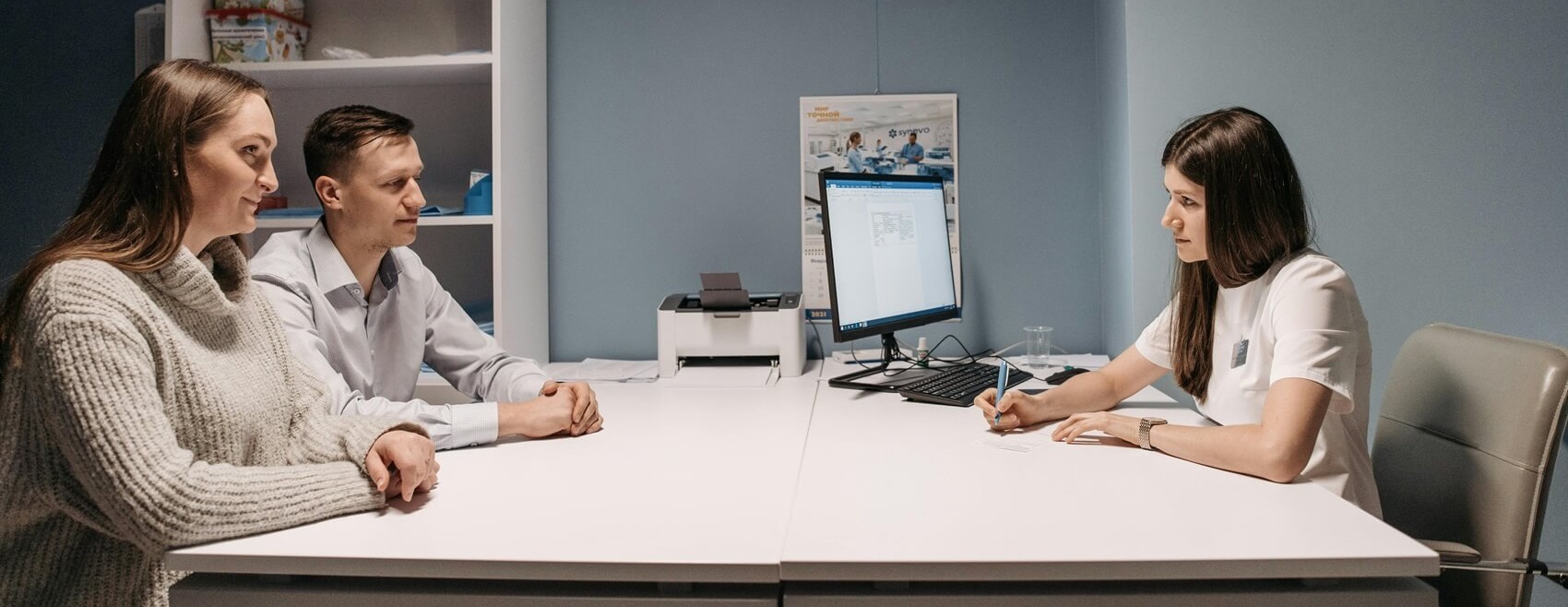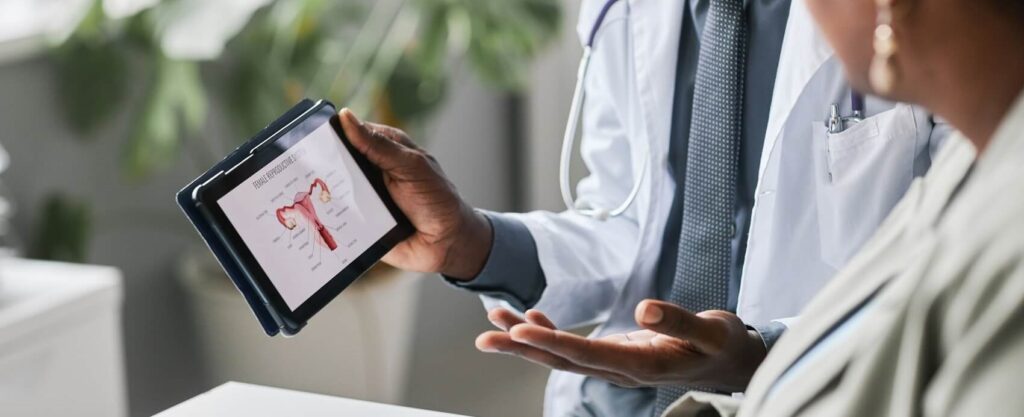
In vitro fertilization (IVF) is an assisted reproduction method that can help single women and couples who struggle with infertility have a baby. Fertilization is done outside of the uterus, in a laboratory setting, in order to enhance the chances of pregnancy when the embryo is transferred into the uterus.
First Fertility offers personalized fertility treatments, including IVF, to help grow your family in a way that’s right for you.
Who Is a Good Candidate For IVF?
There are many reasons why women may struggle with infertility. Your fertility specialist will do their best to determine the cause and recommend fertility treatments that can address it. You may be a good candidate for IVF if:
- You have blocked fallopian tubes.
- You have an infertility disorder such as PCOS or endometriosis.
- You have irregular ovulation cycles.
- Your partner has a low sperm count or other infertility challenges.
IVF can also be helpful for LGBTQ+ women who may want to have children with a partner who is the same gender. Reciprocal IVF allows both partners to participate in the IVF process. One partner supplies the egg, while the other will carry the pregnancy.
IVF Process
IVF is a time-intensive process during which our fertility specialists will closely monitor you. You will have frequent appointments to monitor your body’s response, how many follicles you are growing, and when the eggs have reached maturity for retrieval.
Patient Consultation and Fertility Testing
The first step of any fertility treatment, including IVF, is a consultation with a fertility specialist. Your fertility specialist will review your and your partner’s medical and family history, as well as any struggles with infertility you’ve experienced.
You will then undergo fertility testing to determine the cause of your infertility. This testing helps us create a personalized treatment plan.
Ovarian Stimulation and Monitoring
To begin the IVF treatment, you will receive medication that stimulates your ovaries. As your ovarian follicles develop, your fertility specialist will monitor you. When they are developed, you will inject a “trigger shot,” which will prepare your ovaries to release the eggs.
Egg Retrieval and Sperm Collection
Three days after your “trigger shot,” your fertility specialist will conduct an egg retrieval while you’re under light anesthesia. Your fertility specialist will guide a needle through vaginal ultrasound to collect the mature eggs for fertilization in the lab.
Your partner, or a donor, will provide sperm to fertilize the egg. The sperm will be examined, and the strongest sperm will be selected for fertilization.
Fertilization and Monitoring in Our State-of-the-Art Laboratory
In our IVF lab, our embryologists will fertilize your eggs. The embryos will then be monitored closely for five days before we determine which one is the highest quality to transfer.
Embryo Transfer
The highest-quality day-5 embryo will be transferred into your uterus for implantation. Only one embryo is transferred at a time. The procedure is considered similar to a pap smear in terms of discomfort. You can return to your regular activities on the same day.
If you have additional embryos, you can freeze them for future use if you decide to have more children in the future.
Schedule an IVF Consultation With One of Our Fertility Specialists
If you want to explore fertility treatment options such as IVF, schedule an appointment at First Fertility. Our fertility specialists can conduct a consultation and assessment to create a personalized fertility treatment plan to help you grow your family. Contact us to request an appointment today.



